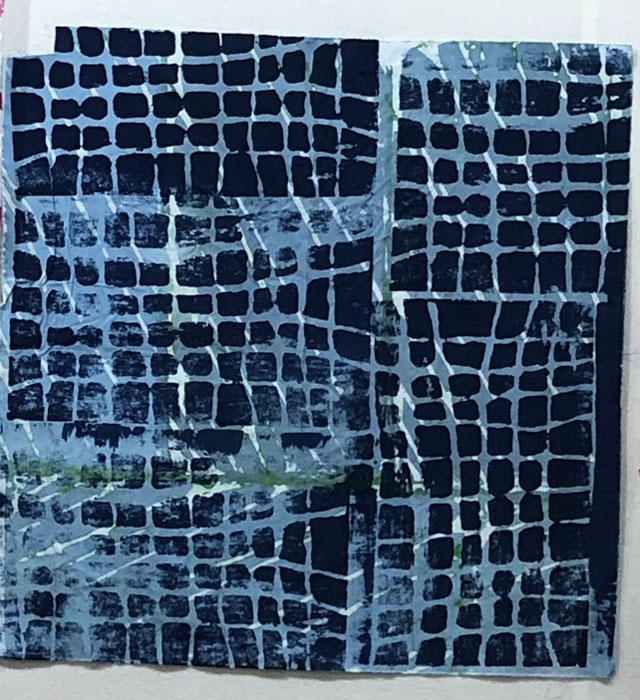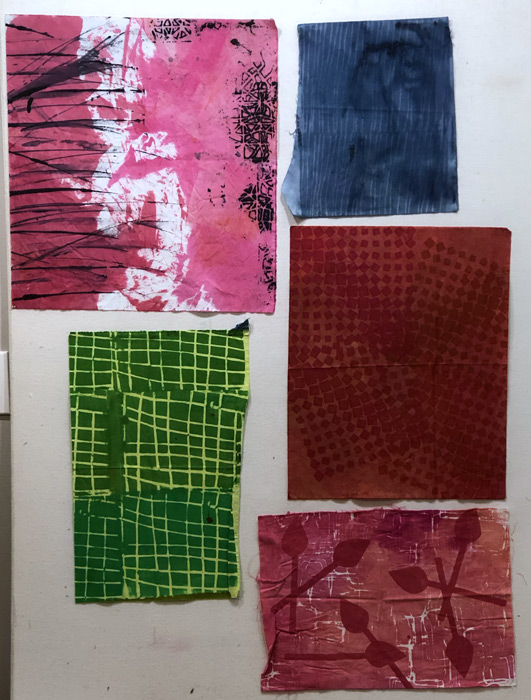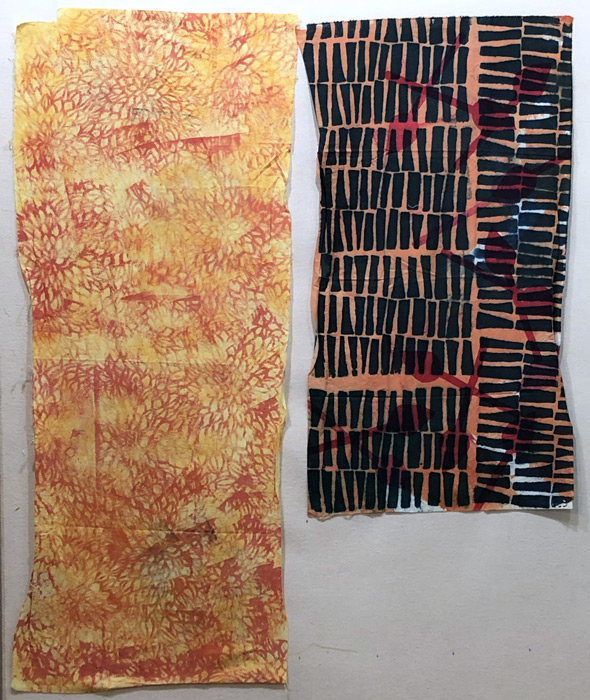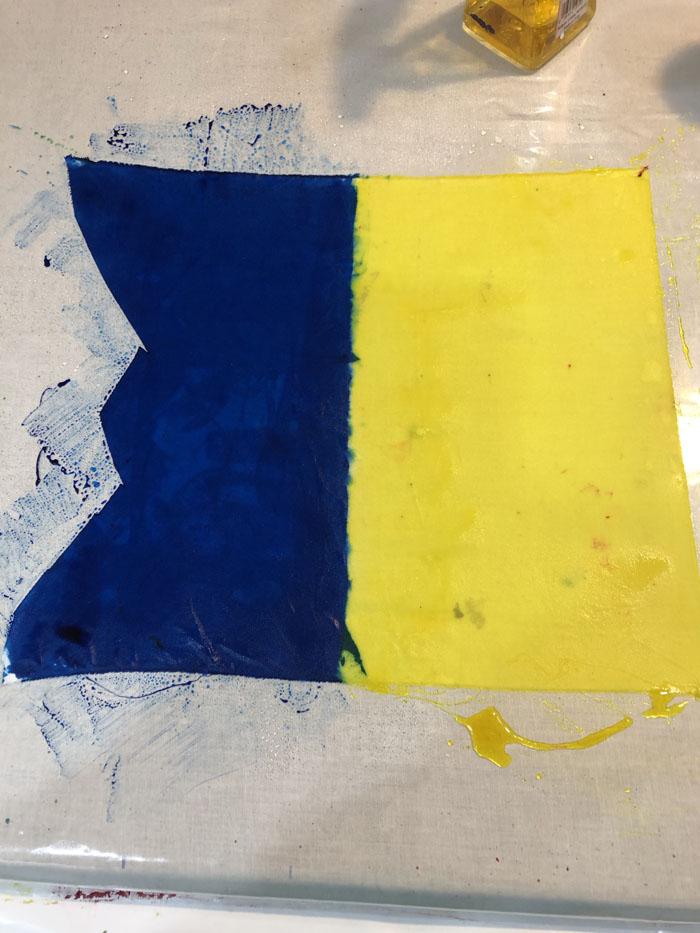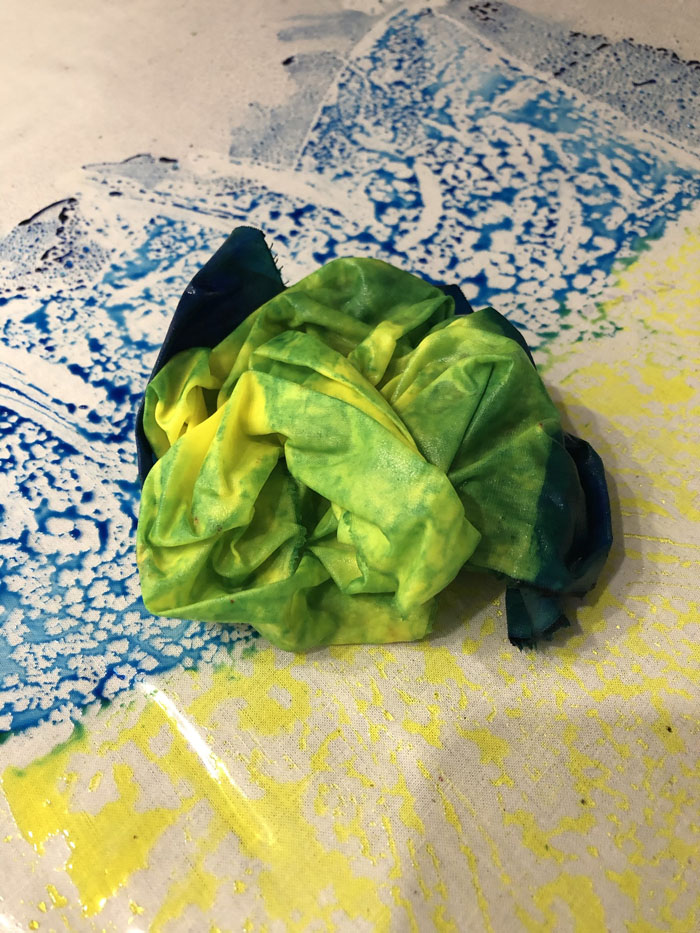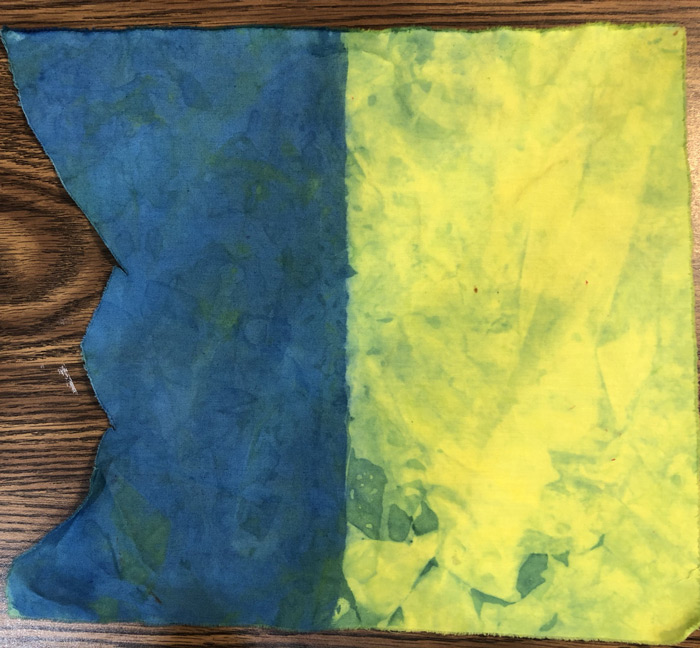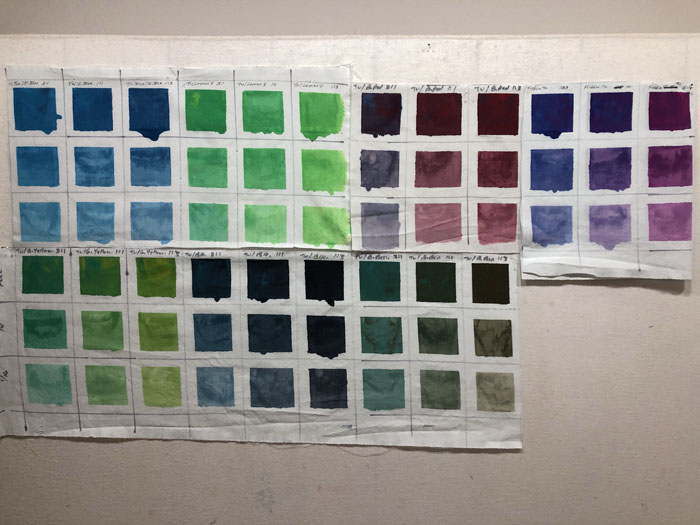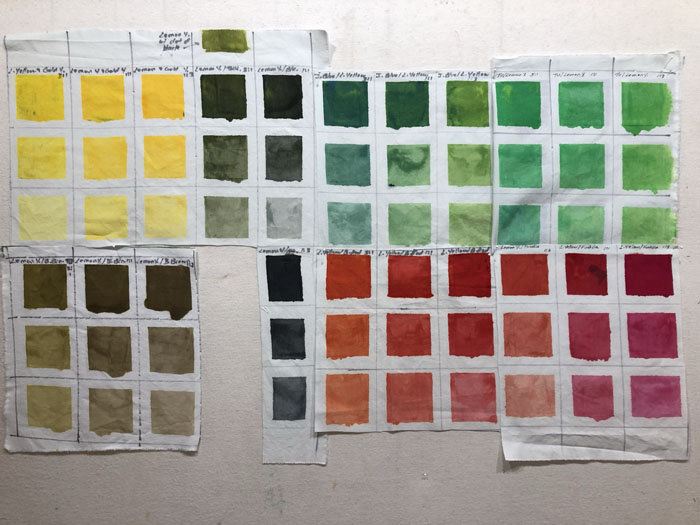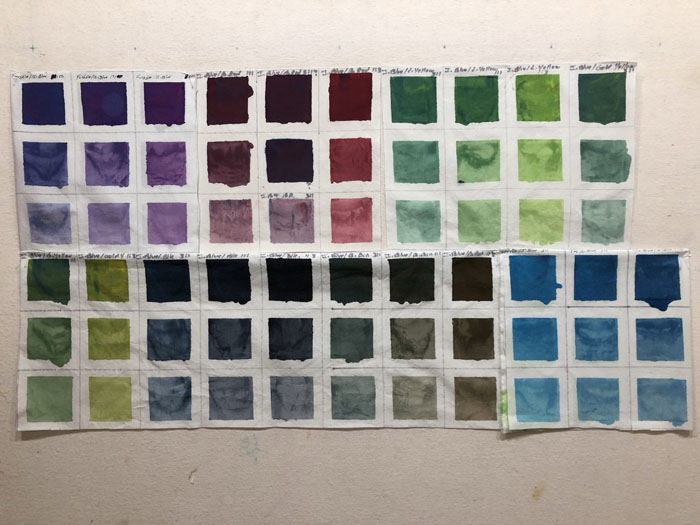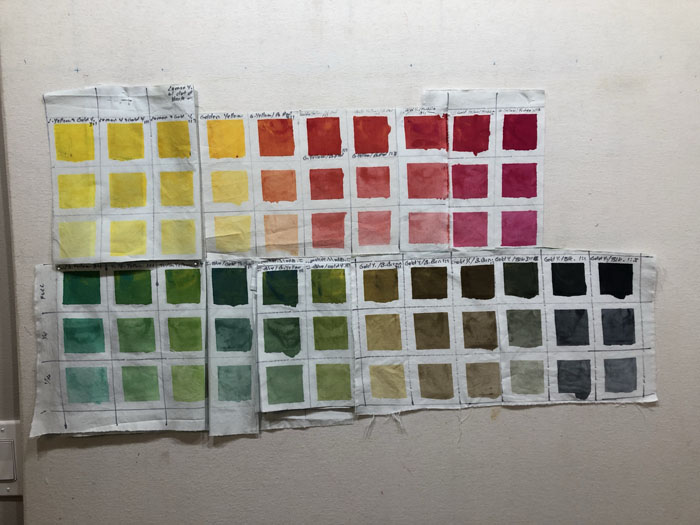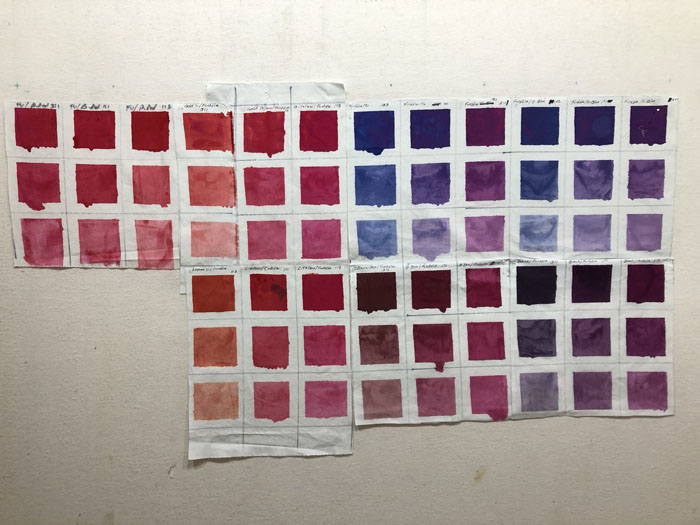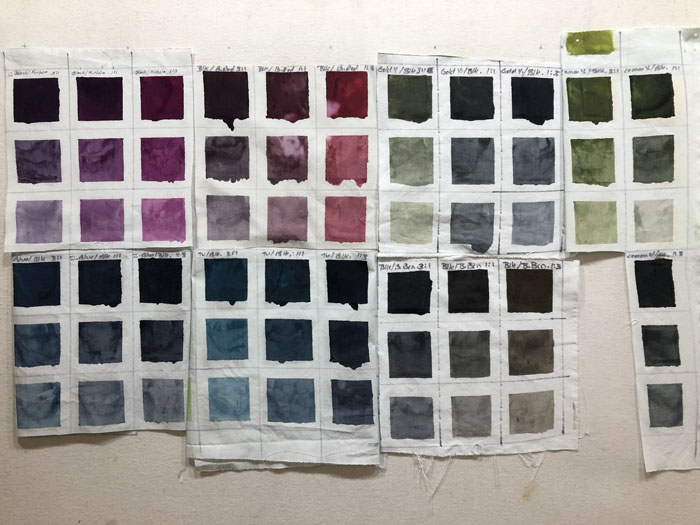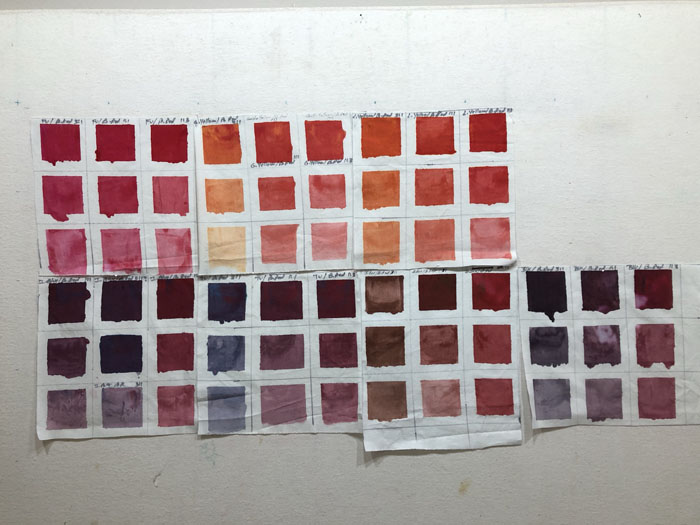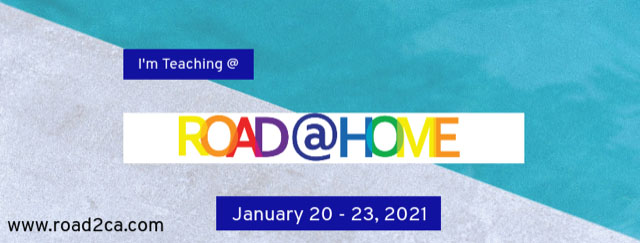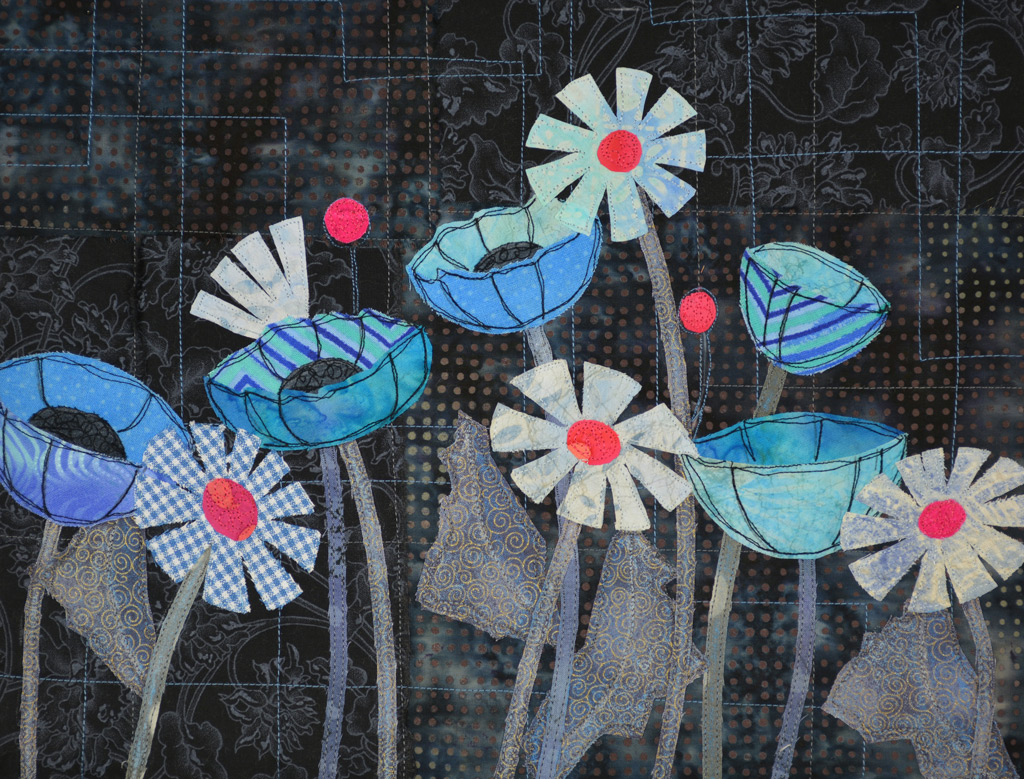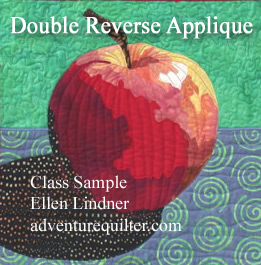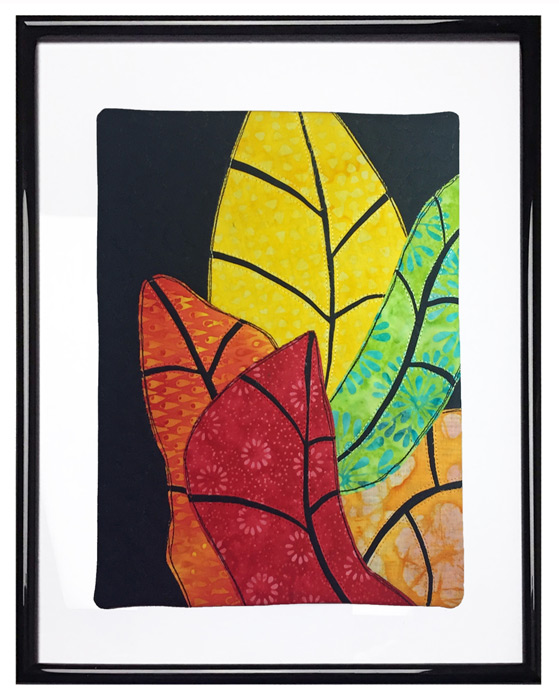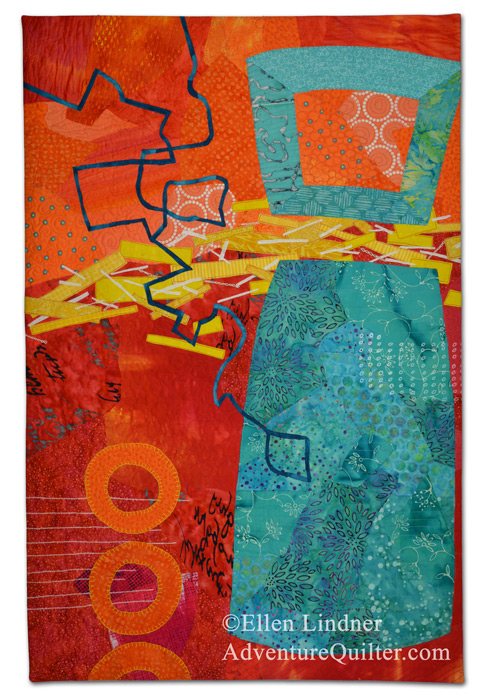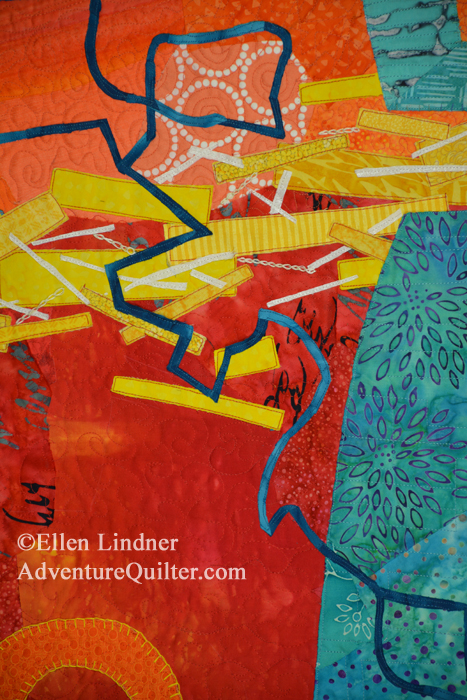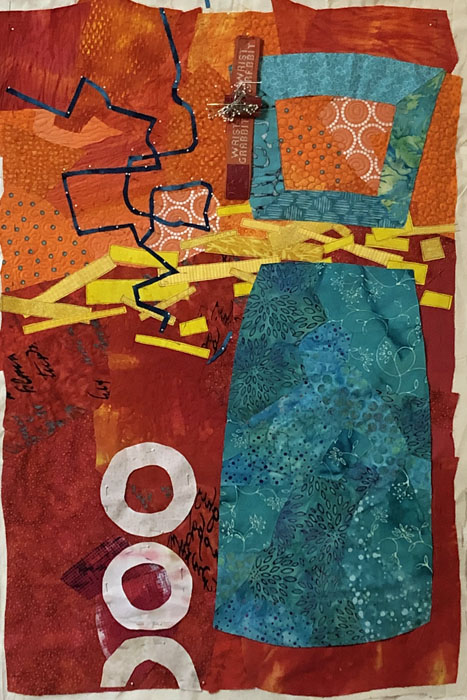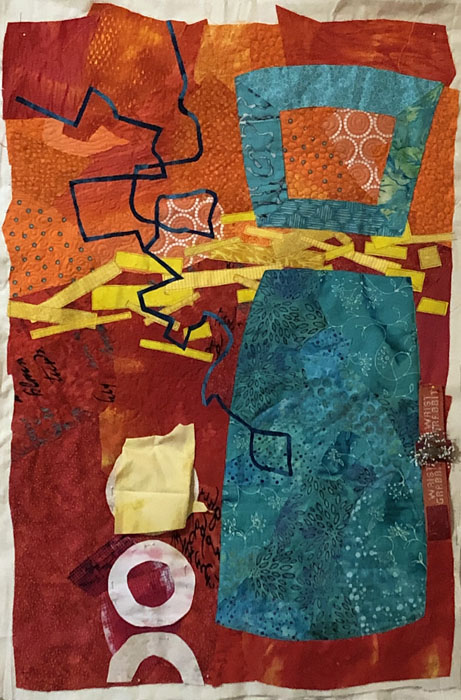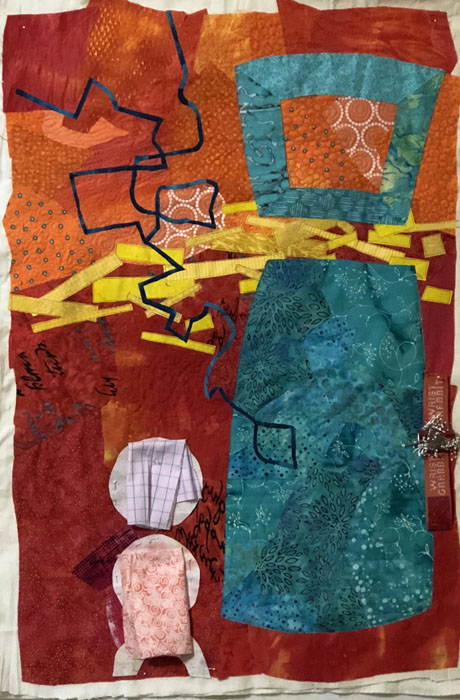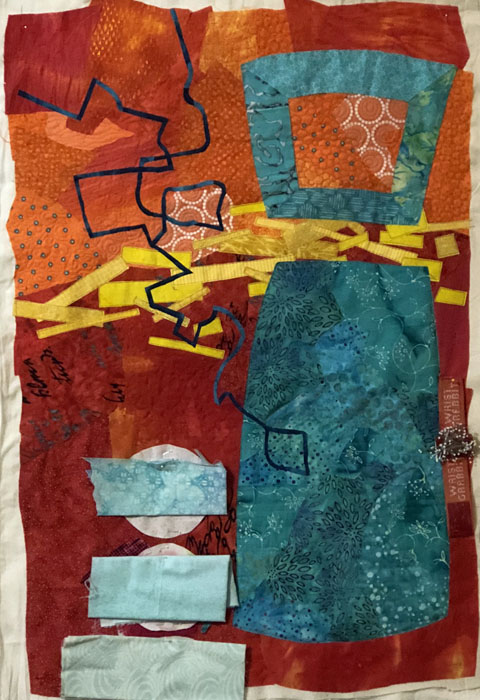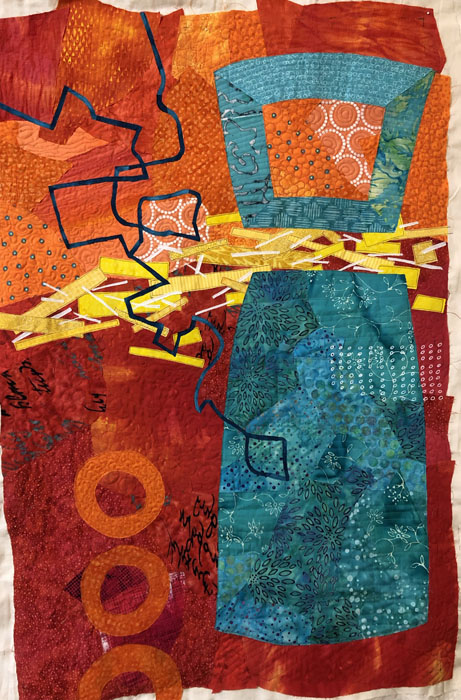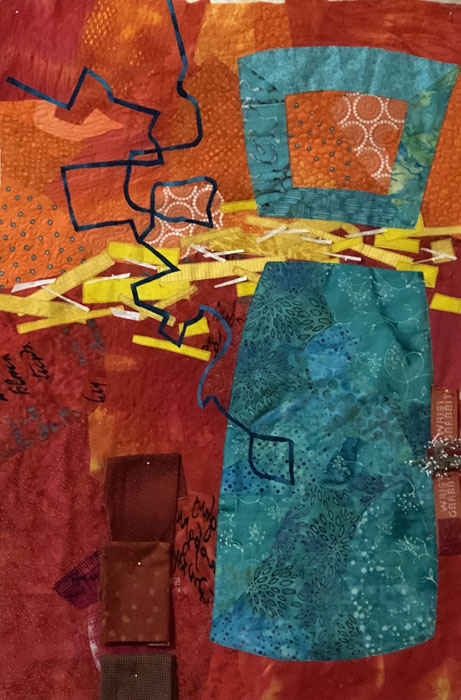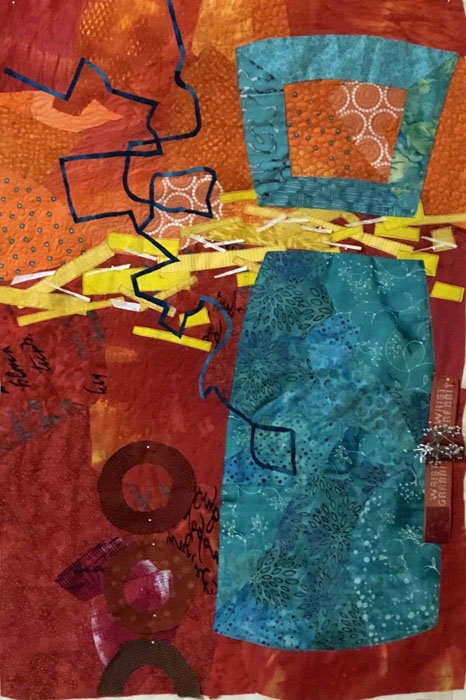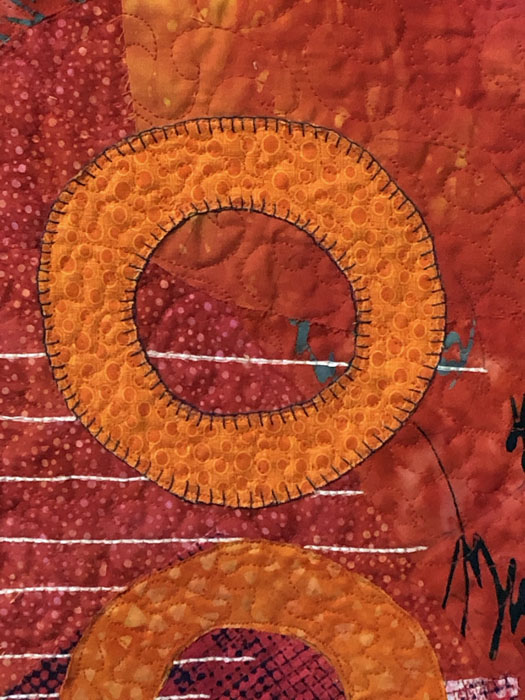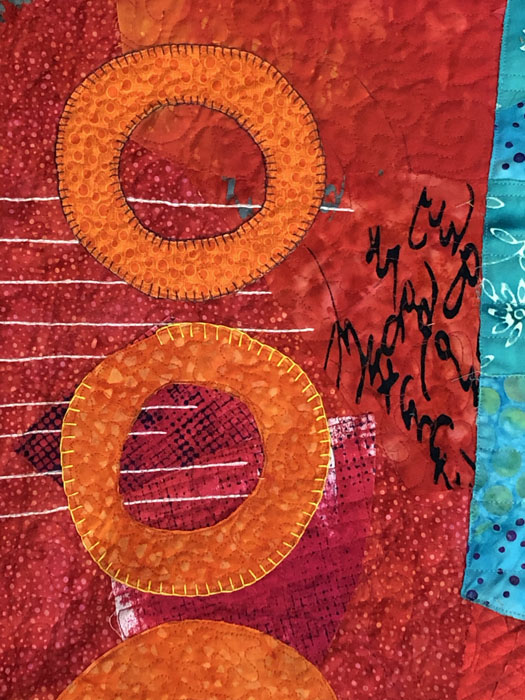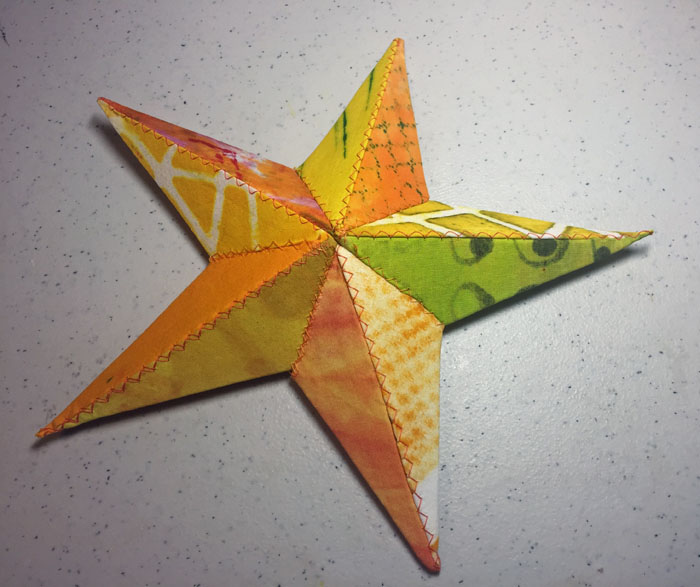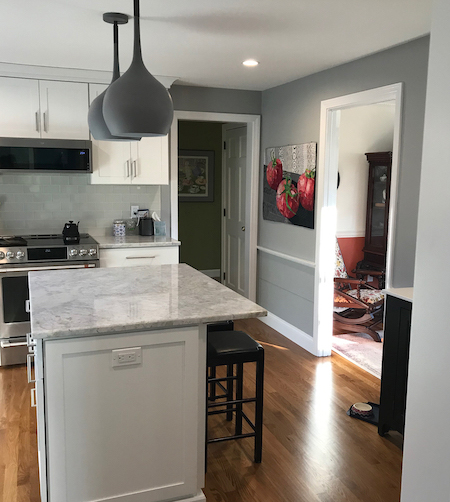I’ve recently changed my dying process and I’m really liking it! The impetus was the book, Colour Your Palette, by Leah Higgins.
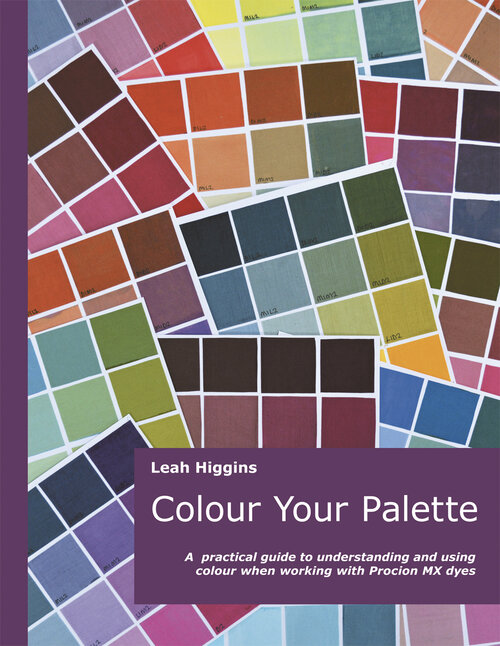
She mixes her print paste thinner than I’ve been doing and is, therefore, able to dispense her dyes from squirt bottles. I decided to give it a try, and boy do I like it!
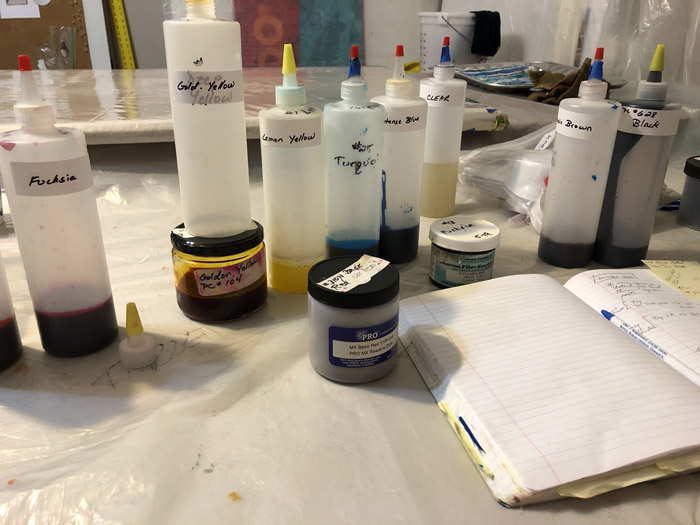
At this new consistency, the dye flows out of these bottles beautifully. It’s VERY easy to control the dye and even to write and draw. Love it!
Another change is the addition of a glass mixing plate.
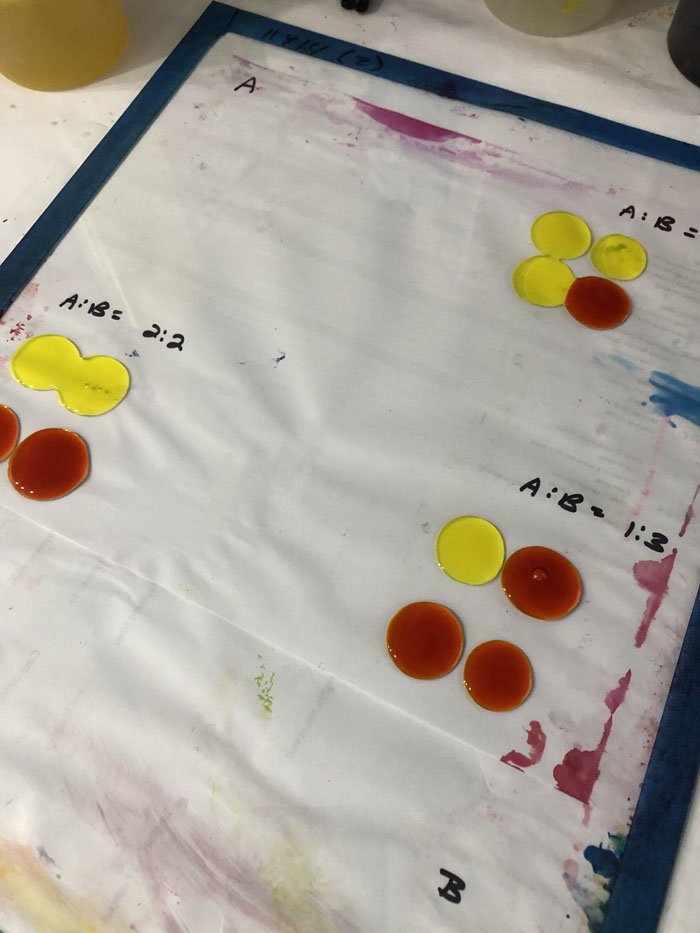
The mixing plate has a couple of advantages over my previous method of mixing directly on the plastic. 1 – I can make notes on a piece of paper underneath, which keep me organized when I’m mixing very specific colors. 2 – I can easily pick it up for cleaning and scrape excess dye into my trash can.
In the book, Leah Higgins walks you through six very extensive exercises which help you to learn all about mixing colors. The first one was to simply print each of your basic (8) colors in a variety of strengths.
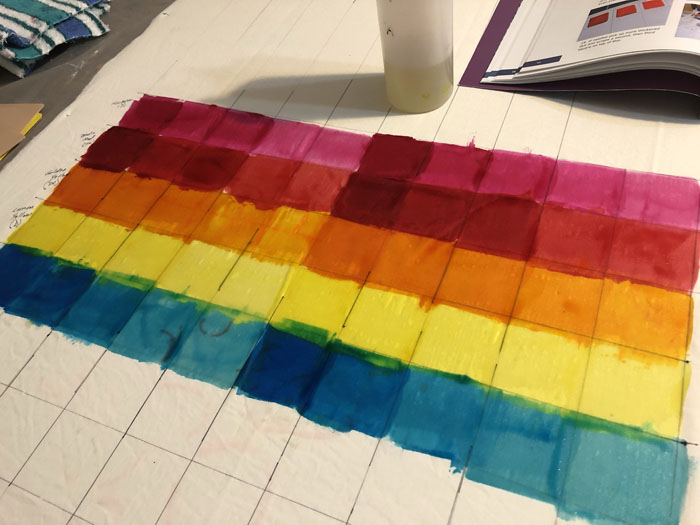
That, by itself was really useful. But, Leah takes it one BRILLIANT step further. She has you make two identical samples. You wash one and leave the other one to dry and remain unprocessed. This will serve as an example of how different things look wet and dry. VERY useful!
See what I mean, below. The top colors, in the plastic bag, are completely untreated. The ones below are washed and dried. Look for the two swatches with the yellow pins in them. These are both Golden Yellow, full strength. But, notice how much the color hue and saturation changed when washed!
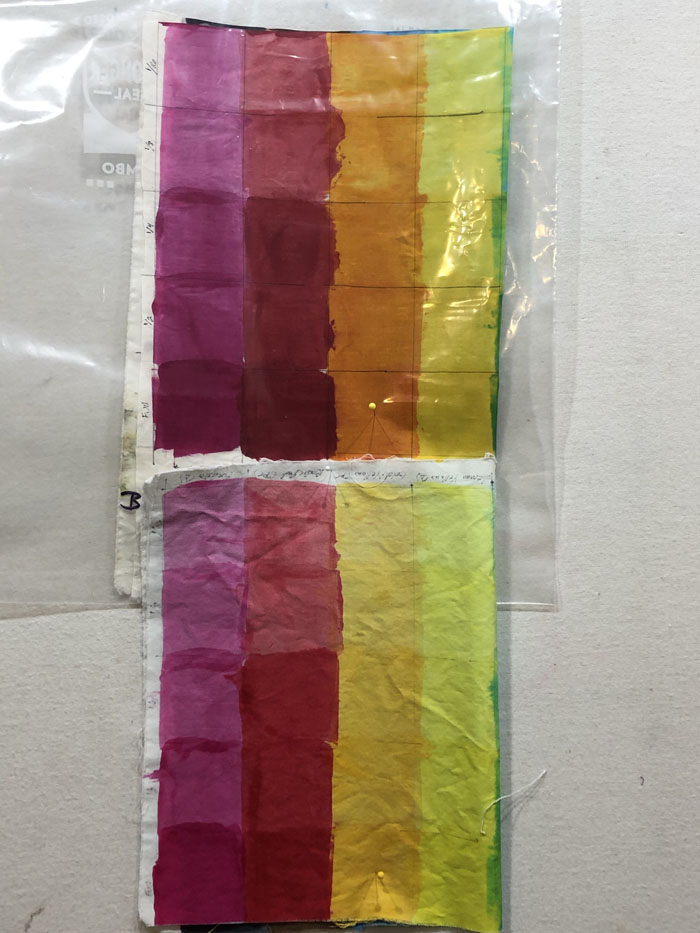
And here are the other 4 colors. Again, notice the two swatches with pins in them. They’re both turquoise, at half strength.
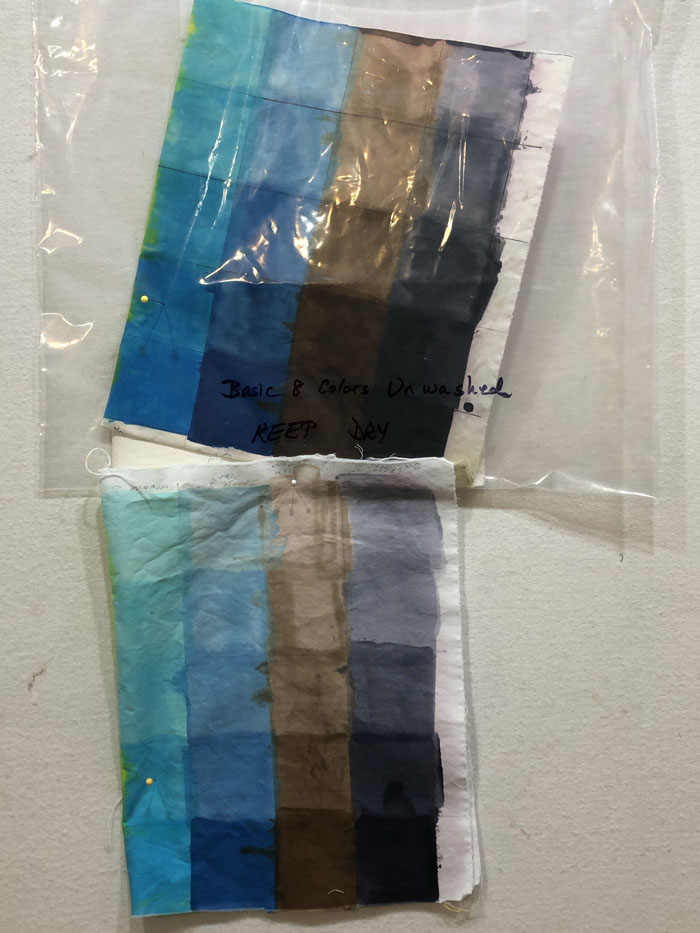
I’ve done many more swatches following Leah’s instructions. And I’ve had fun dying a variety of fabrics. More about that coming soon.
If you want to know how to mix your print paste to this same consistency, all you have to do is follow the instructions that come on the package of thickener. (I used the SH print paste mix from Pro Chemical and Dye.)
Ellen Lindner


